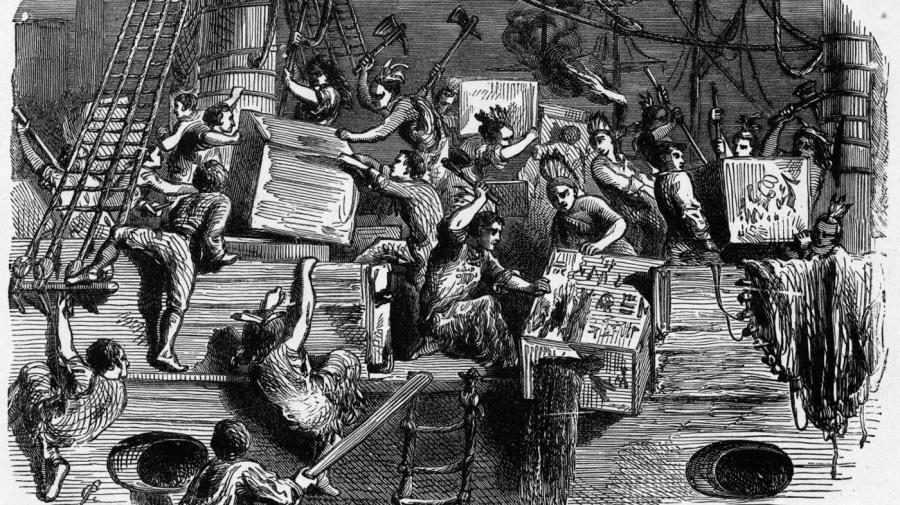What Happened After the Boston Tea Party?

After the Boston Tea Party, the British parliament passed the Coercive Acts in an attempt to punish the colonists. The colonists staged further acts of protest and convened the first Continental Congress, which protested the tea tax and organized a boycott of British goods. Tensions continued to build until the American Revolutionary War broke out.
During the Boston Tea Party in December 1773, a group of American colonists threw three shiploads of tea into Boston Harbor to illustrate their opposition to taxation without representation. The resulting legal punishments were called the Coercive Acts by the British and the Intolerable Acts by the Americans. The Boston Port Act closed Boston Harbor to shipping until the colonists paid for the tea. The Massachusetts Government Act took away free elections for government positions in favor of appointees by the crown. The Administration of Justice Act allowed British officials accused of crimes to be tried outside Massachusetts. The Quartering Act allowed the British governor to house British troops in unoccupied colonial buildings.
The Intolerable Acts led to increased American cooperation in resisting British rule. Discord between the British forces and colonists continued to increase until, in April 1775, it erupted in open warfare at the battles of Lexington and Concord, which are commonly considered the opening battles of the Revolutionary War.





